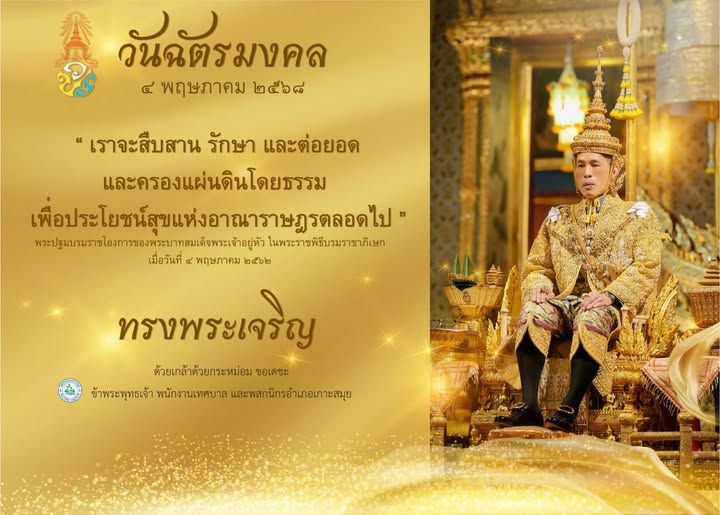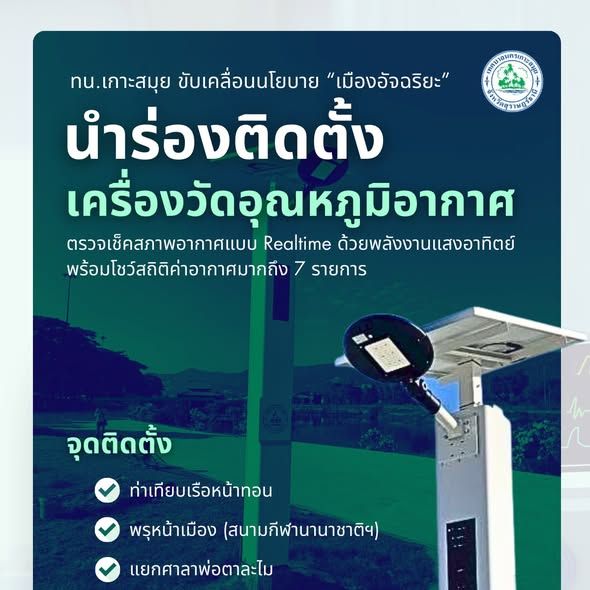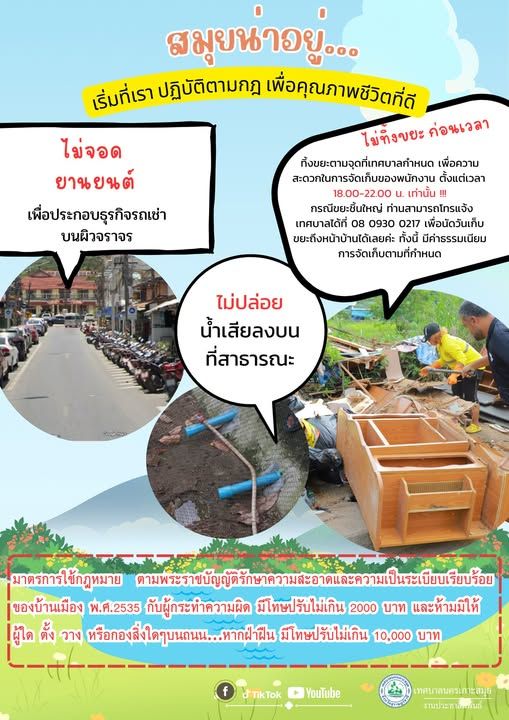Significance of Coronation Day
Coronation Day in Thailand is a major national observance that commemorates the anniversary of the King’s official coronation, following the ancient traditions of the Thai royal court. This day is a reflection of the Thai people’s deep respect for their monarchy and serves as an opportunity to honor the King and the continuity of the royal institution.
Historical Origins of Coronation Day
The idea of formally commemorating the coronation as an annual event dates back to the reign of King Mongkut (Rama IV). King Mongkut recognized that in other monarchies around the world, the king’s accession to the throne was marked with great celebrations. Noting that Siam (as Thailand was formerly known) did not have such a dedicated holiday, he established a royal merit-making event to honor the Great White Umbrella (Royal Nine-Tiered Umbrella), an important symbol of kingship in Thailand. This event was called “Chakri Mongkol,” meaning the auspiciousness of the Chakri Dynasty.
Evolution of the Coronation Day Holiday
During the reign of King Bhumibol Adulyadej (Rama IX), the Coronation Day ceremony became a significant annual event. His Majesty’s coronation took place on May 5, 1950, and the government officially recognized May 5 as a public holiday. Each year, elaborate ceremonies were held to mark this important date, involving traditional rituals, royal audiences, and public celebrations.
With the ascension of King Maha Vajiralongkorn (Rama X), the coronation ceremony was held from May 4 to May 6, 2019, with the official coronation on May 4. In recognition of this, the Thai government thereafter designated May 4 as Coronation Day. Since then, it has been observed annually as a public holiday, inviting the nation to reflect on the monarchy’s role in Thai society.
Traditional Coronation Rituals
The Thai coronation ceremony is deeply rooted in centuries-old customs and Buddhist symbolism. The highlight of the ritual is the presentation of the Royal Nine-Tiered Umbrella, a sacred object representing the authority and legitimacy of the King. Other key elements include:
- The anointment with holy water collected from various sacred sources across Thailand
- The presentation of royal regalia, such as the Great Crown of Victory, the Sword of Victory, and other ceremonial objects
- The royal audience, during which the King grants blessings to members of the royal family, government officials, and the Thai people
Nationwide Celebrations and Observances
On Coronation Day, government offices, schools, and many businesses close in observance of the holiday. Throughout the country, temples and public spaces host merit-making ceremonies, prayers, and displays of loyalty to the monarchy. Citizens often decorate their homes and public buildings with yellow, the color associated with the King, and images of the monarch are prominently displayed.
Cultural performances, exhibitions, and educational activities are also organized to deepen public understanding of the monarchy’s history and its ongoing role in modern Thailand.
The Monarchy’s Role in Modern Thailand
The Thai monarchy stands as a symbol of national unity and continuity. Coronation Day is not only a celebration of the current monarch’s reign but also an expression of the enduring bond between the institution of the monarchy and the Thai people. The annual observance reinforces a sense of shared heritage and national identity, binding generations together through tradition and respect for the royal family.
Additional Context on Royal Symbolism
The Great White Umbrella, or the Royal Nine-Tiered Umbrella, is perhaps the most significant piece of royal regalia in the coronation ceremony. It signifies the King’s divine right to rule and is a hallmark of sovereignty. The number nine is considered auspicious in Thai culture, further emphasizing the sacredness of the monarchy.
Other important regalia used during the ceremony include the Royal Slippers, the Fan and Fly Whisk, and the Whip, each carrying symbolic meanings tied to the King’s leadership and responsibilities.
Public Participation and Commemoration
Coronation Day provides an opportunity for Thai citizens to express their loyalty and gratitude to the King. Activities such as charitable events, community services, and educational programs are held throughout the country. The day is often marked by displays of unity and patriotism, with people wearing yellow clothing and attending local ceremonies.




